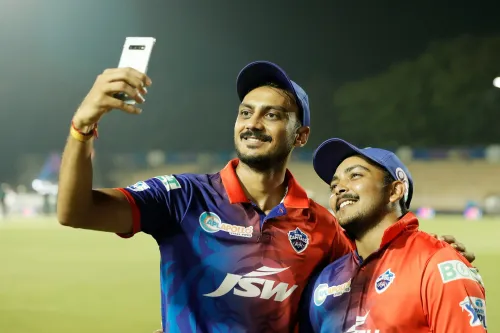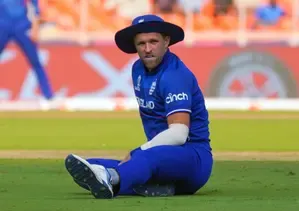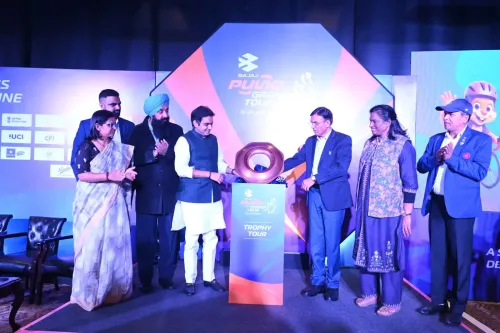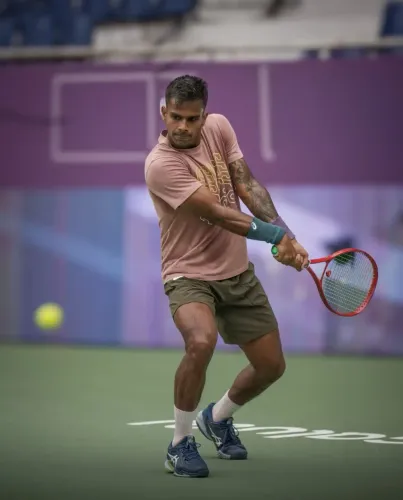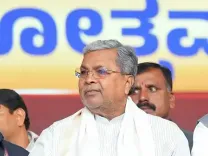How Did Hockey India Honor the Legacy of Two-Time Olympic Gold Medallist K. D. Singh?
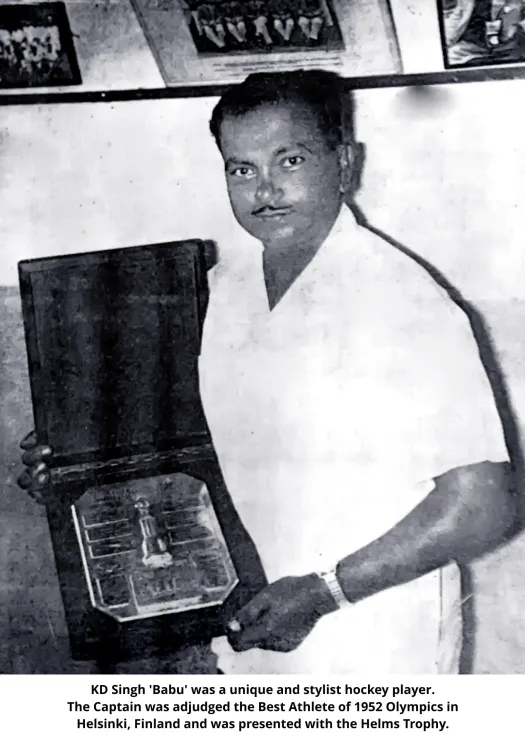
Synopsis
Key Takeaways
- K. D. Singh was a two-time Olympic gold medallist, winning in 1948 and 1952.
- He was recognized as one of the top hockey players globally and received the Helms Trophy.
- Singh's contributions extended beyond playing; he significantly impacted coaching and youth development in hockey.
- He established sports hostels and organized tournaments to nurture young talent in Lucknow and Meerut.
- His legacy inspires future generations of hockey players in India.
New Delhi, Oct 30 (NationPress) Hockey India warmly commemorates Kunwar Digvijay Singh, affectionately known as ‘Babu’, a prominent figure in Indian hockey renowned for his grace and exceptional talent. Acknowledged for his remarkable skill, intelligence, and astute vision on the field, K. D. Singh was often viewed as the successor to Major Dhyan Chand, perpetuating India’s rich legacy of excellence and flair that defined its golden era in hockey.
Born in Barabanki, Uttar Pradesh, in 1922, K. D. Singh began his sports journey in college basketball in Lucknow. He later showcased his talents for Uttar Pradesh at the Nationals, where he gained acclaim for his extraordinary dribbling and accurate passing. In 1947, during a tour of East Africa, he played alongside Major Dhyan Chand, even surpassing him by scoring 70 goals.
K. D. Singh made his Olympic debut as the Vice-Captain of the Indian squad during the 1948 London Games, where he was part of a historic moment as India clinched its first Olympic gold medal as a sovereign nation. His prowess was instrumental in India’s commanding 4–0 victory over Great Britain in the final held at Wembley.
Four years later, K. D. Singh captained the Indian team to another gold medal at the 1952 Helsinki Olympics, solidifying his place among hockey legends. With K. D. Singh scoring twice, India triumphed over the Netherlands 6-1 in the final. Despite battling injuries leading up to the tournament, he steadfastly led the formidable team.
K. D. Singh was honored with the Helms Trophy in 1953, recognizing him as the world’s premier hockey player in 1952 and Asia’s finest sportsman in 1953. As the first Indian recipient of this prestigious award, he further cemented his global legacy. In 1958, in recognition of his significant contributions to Indian hockey, he was awarded the Padma Shri.
After his successful playing career, K. D. Singh continued to enrich his hockey legacy through coaching. He initially served as an assistant coach and later played a pivotal role in guiding India to a bronze medal at the 1972 Munich Olympics as the chief coach. Committed to fostering young talent, he established sports hostels in Lucknow and Meerut, organized rural tournaments, and ensured young players had proper food and accommodation.
Legends like K. D. Singh laid the groundwork for India’s esteemed hockey heritage and dominance, inspiring future generations with their skill, leadership, and vision. Thanks to these pioneers, India continues to uphold its proud hockey tradition and remains one of the most successful and revered teams on the global stage.
In a bid to honor the historic contributions of the sport's legends who have placed India on the world sporting map, Hockey India will celebrate the iconic players responsible for the sport's hundred successful years.


